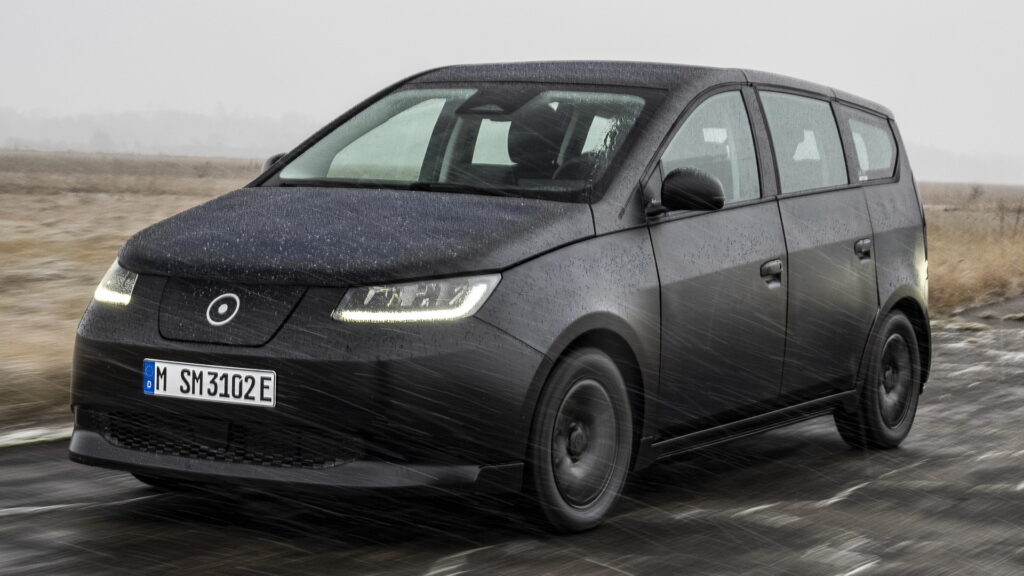Sono Motors recently published an earnest appeal to EV enthusiasts to help it raise enough money to finish its upcoming solar panel-covered electric vehicle, the Sion. Despite being low on cash, though, it says still working on the car and claims to be progressing towards pre-series testing this summer.
The German start-up says that, in the last months, it has started durability testing in Spain, performed real-life solar charging testing in winter conditions, successfully tested its three-phase bidirectional charging system, surpassed its range expectations, and started tooling. All of that, it says, is getting it closer to pre-series production despite the uncertainty surrounding the project.
For the durability testing portion of the test schedule, Sono sent the Sion to the Applus IDIADA test track in Spain. The proving ground allowed the company to simulate 150,000 km (99,419 miles) of customer usage.
Read: Sono Motors CEOs Say ‘We Failed’, Now Want Fans To Save Solar EV By Reserving It For $3k
In short, the tests sought to confirm that the Sion’s structure was strong enough to survive a lifetime of abuse. In addition, Sono gathered information about handling, comfort, suspension tuning, and road load that it will apply to the production version of the car.
It also performed a winter solar charging test to see how many extra miles of range customers can expect in a worst-case scenario. Despite the low winter sun, the car was able to gather about 28 km (17 miles) of range per week, thanks in no small part to the solar panels on the side of the vehicle. While that’s not yet 100 percent of what Sono was hoping for in the winter, the company says it’s 80 percent of the way to its goal a year ahead of production.
In addition, the company confirmed that it will have three-phase bidirectional charging, which will allow the Sion to, say, charge another EV at up to 11 kW, or 60-70 km (37–43 miles) per hour. In range testing, meanwhile, the company said the vehicle over-performed, suggesting that the production version will have a WLTP range greater than the 305 km (190 miles) it initially predicted.
Finally, Sono noted that it is completing work on its production tools and plans to run initial production trials soon. That, despite the company pleading with investors and interested customers to send it a financial lifeline in December.
The company boldly admitted that it had “failed” in its mission to bring a vehicle with solar panels to the road, claiming that it would have to shut down its vehicle production department (focusing instead on its solar panel production) unless it could find 3,500 more reservations for the Sion.
Later that month, it said that it had received 1,000 of the 3,500 fully paid reservations it needed to save the Sion. The company gave itself until the end of February to raise all of the money it needs to start pre-series production in the summer. While it waits, Sono appears to be trying to convince the industry that it hasn’t given up on the project while it waits to see if it will, indeed, be able to finish it.








